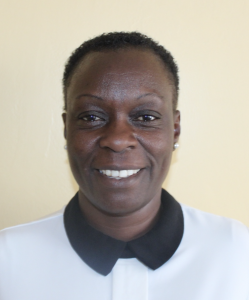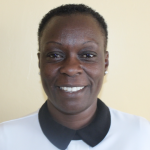The 15 staff members who work at Shihome Dispensary struggle to obtain the necessary water to meet their patient's daily needs. Although they do their best to serve those who come to them for treatment, providing proper medical care is difficult with too little water.
There is an HIV clinic, pharmacy, immunization program, TB services, nutrition program, and general care. On average, the health post daily serves 100 outpatients and five inpatients, so water is critical, and without it, everyone suffers.

A rain tank (shown below) on the health center's campus is small and quickly runs dry. When it empties, the staff must find water from other places, but this can be time-consuming, costly, and risky for everyone's health.

"The health facility pays a bodaboda man (taxi) to bring them water from the protected spring, which is far from the health center. On some occasions, the security lady who is one of the members of staff goes and fetches water for the health dispensary," said field officer Mary Afandi.
"Sometimes, when I come for treatment, I find no water to drink at the health dispensary," said 15-year-old Meshak M. (shown below).

Although the spring was protected many years ago, it now has issues, and the water quality can not be trusted, so it is not an easy solution.

"The spring was protected many years [ago by] the community. It is dirty, and also the drainage is blocked. It doesn't have stairs, so it's hard to access when it rains. The spring is also overcrowded, and it is far from the health center. When it rains, it's hard to access the spring because the place is slippery and not well maintained. The water is, in most cases, contaminated during the process of handling," Mary said.
"The use of water from this source has resulted in [the] emergence of waterborne diseases, whose treatment is expensive, therefore eating into family finances," concluded Mary.
When people who are already ill come for treatment and either have to go without water or consume contaminated water while there, it makes everything more challenging. It puts their health at greater risk, goes against the health center's purpose, and diminishes the success of those working so hard to provide care.
"Sometimes, I have many patients at the health center and they need water to drink and also to clean their items. When I go to the spring, I find many people queuing for water, and it takes me [a] long time to go back to [the] health center to attend to other patients," said 38-year-old staff member Priscah Naliaka, seen below collecting water from the spring.

When staff have to leave the facility to find water, their daily activities can not be completed, and patients needing emergent care are left without help and put at risk.
Installing a well will enable staff members to provide better care for patients. The surrounding community members who live near the health center can also access water to help meet their daily needs.
The Proposed Solution, Determined Together...
At The Water Project, everyone has a part in conversations and solutions. We operate in transparency, believing it benefits everyone. We expect reliability from one another as well as our water solutions. Everyone involved makes this possible through hard work and dedication.
In a joint discovery process, community members determine their most advantageous water solution alongside our technical experts. Read more specifics about this solution on the What We're Building tab of this project page. Then, community members lend their support by collecting needed construction materials (sometimes for months ahead of time!), providing labor alongside our artisans, sheltering and feeding the builders, and supplying additional resources.
Water Access for Everyone
This water project is one piece in a large puzzle. In Kenya, Sierra Leone, and Uganda, we're working toward complete coverage of reliable, maintained water sources that guarantee public access now and in the future within a 30-minute round trip for each community, household, school, and health center. One day, we hope to report that this has been achieved!
Training on Health, Hygiene & More
With the community's input, we've identified topics where training will increase positive health outcomes at personal, household, and community levels. We'll coordinate with them to find the best training date. Some examples of what we train communities on are:
- Improved hygiene, health, and sanitation habits
- Safe water handling, storage & treatment
- Disease prevention and proper handwashing
- Income-generation
- Community leadership, governance, & election of a water committee
- Operation and maintenance of the water point
Handwashing Stations
Alongside each water source, we also provide two new gravity-fed handwashing stations that will allow everyone at the health center to wash their hands without running water. Handwashing is so important to help prevent illnesses, especially at a health center where hygiene is critical to vulnerable patients.
The health center staff will maintain the stations, fill them with water, and supply them with soap.


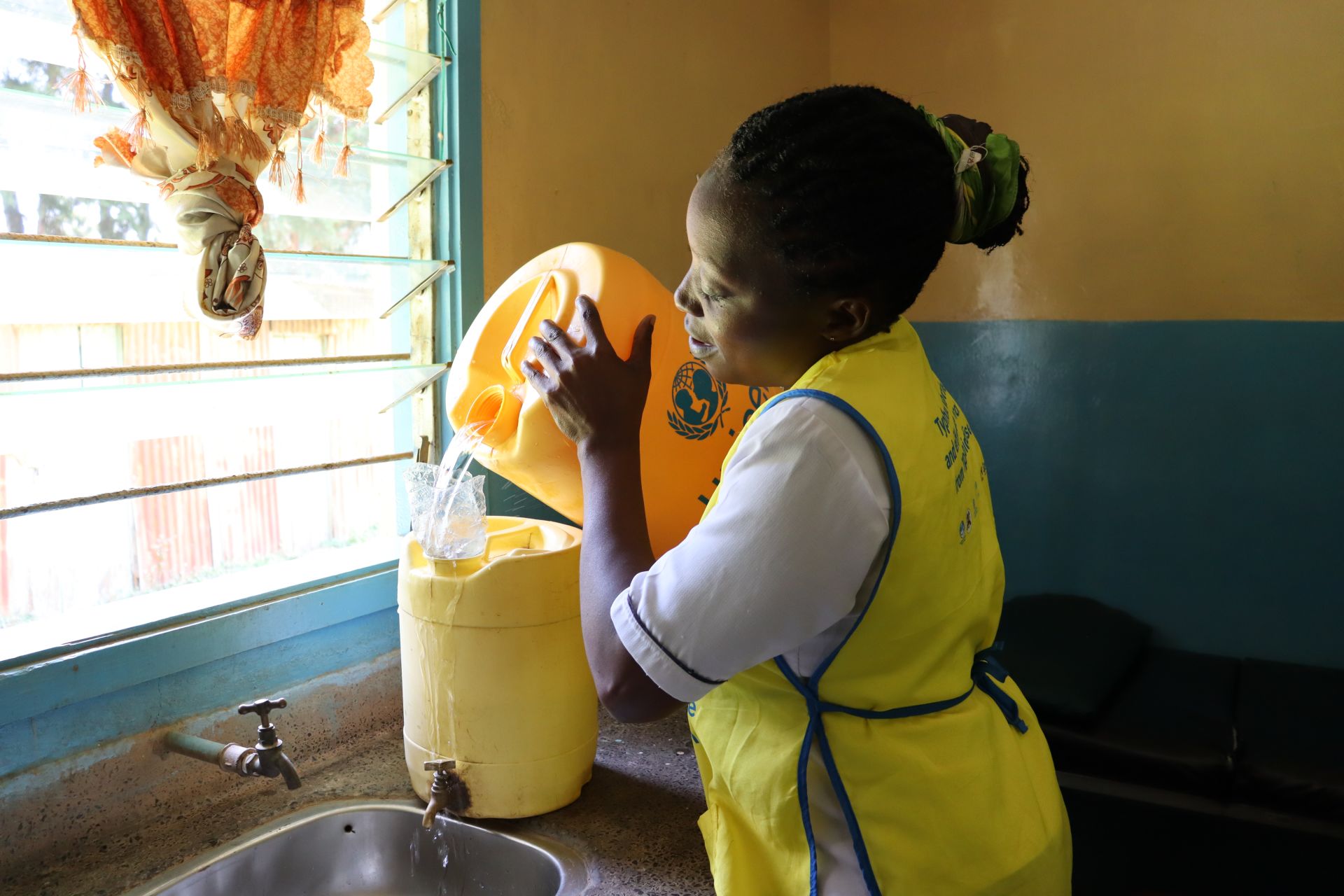
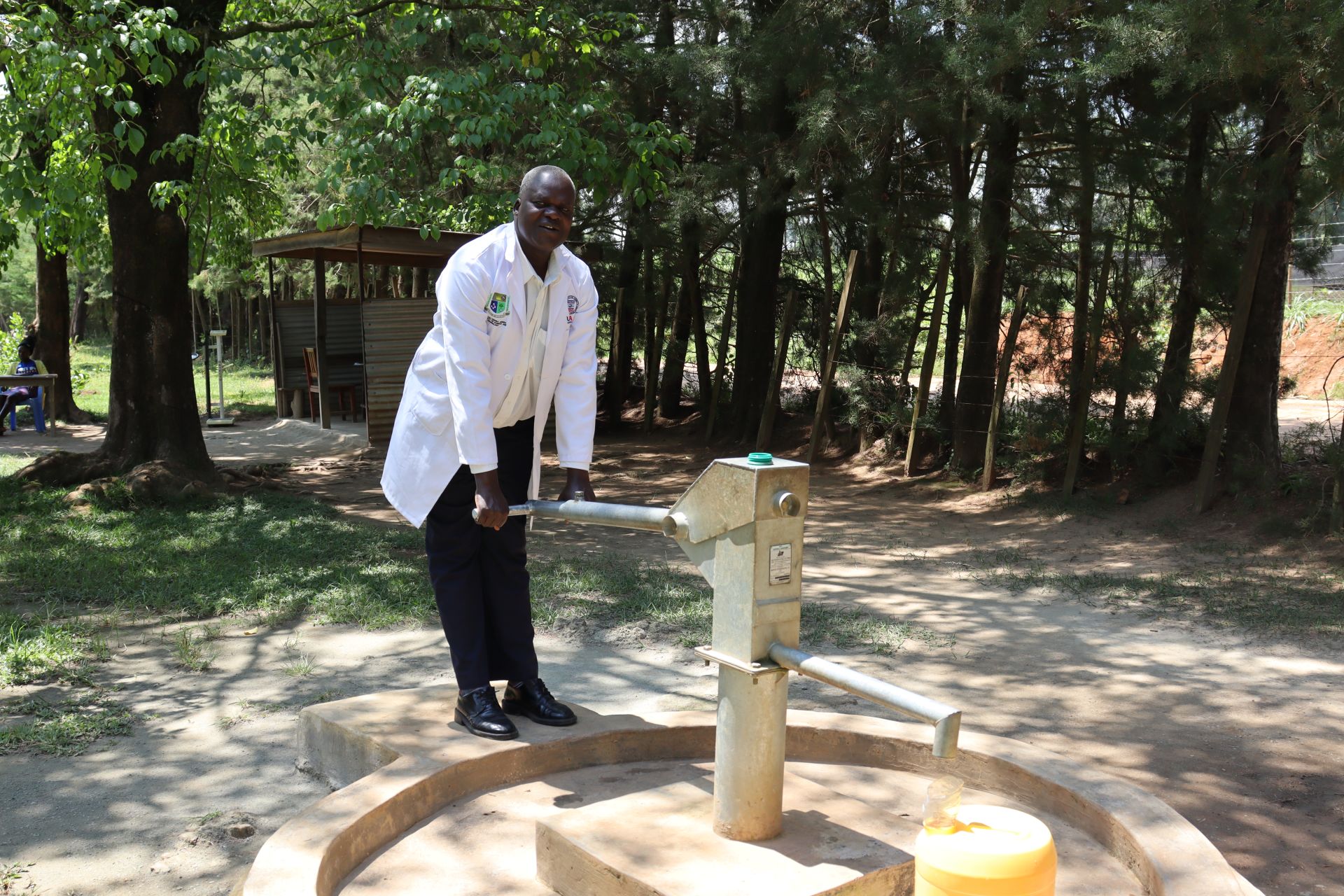
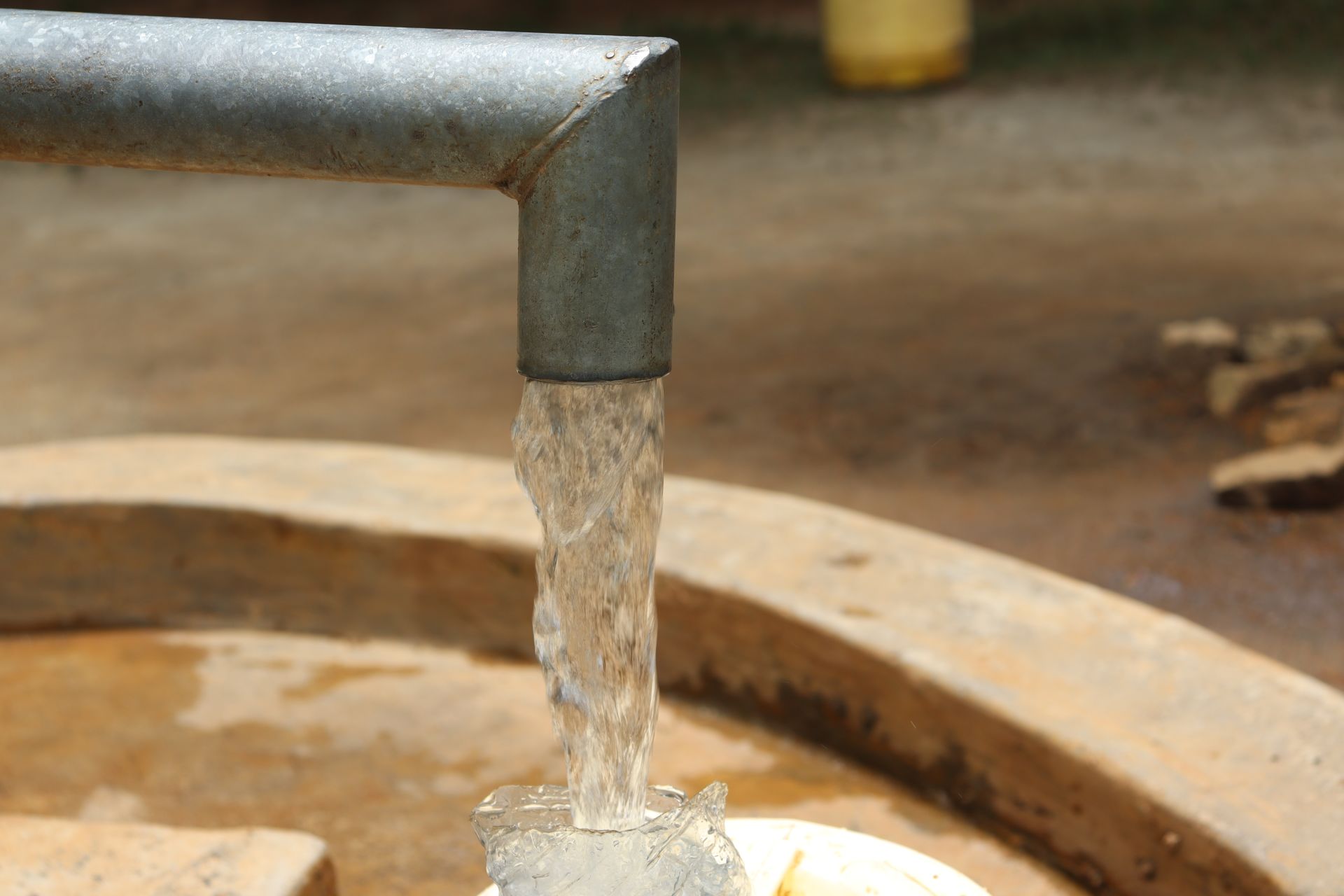
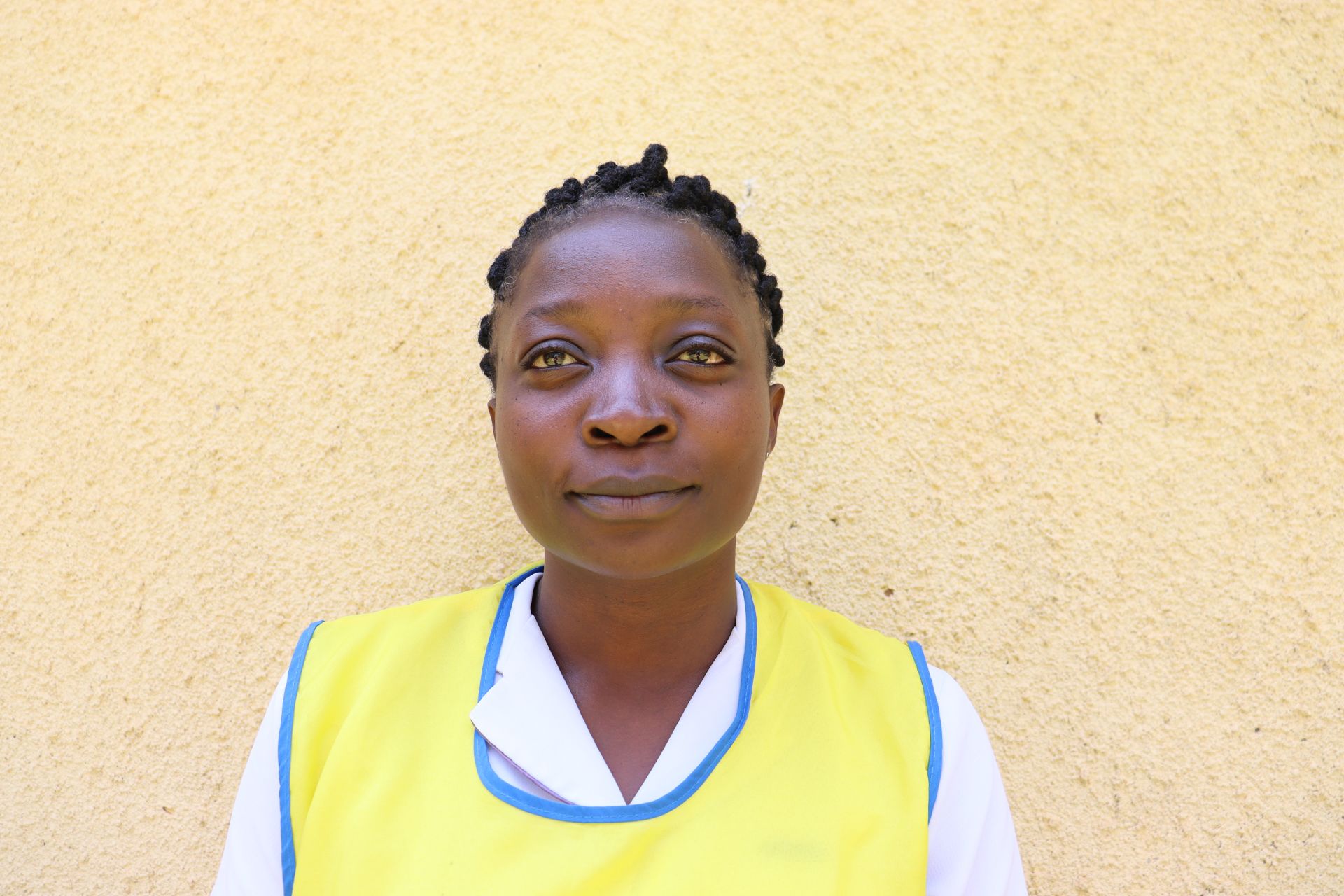

 Borehole Well and Hand Pump
Borehole Well and Hand Pump
 Rehabilitation Project
Rehabilitation Project










